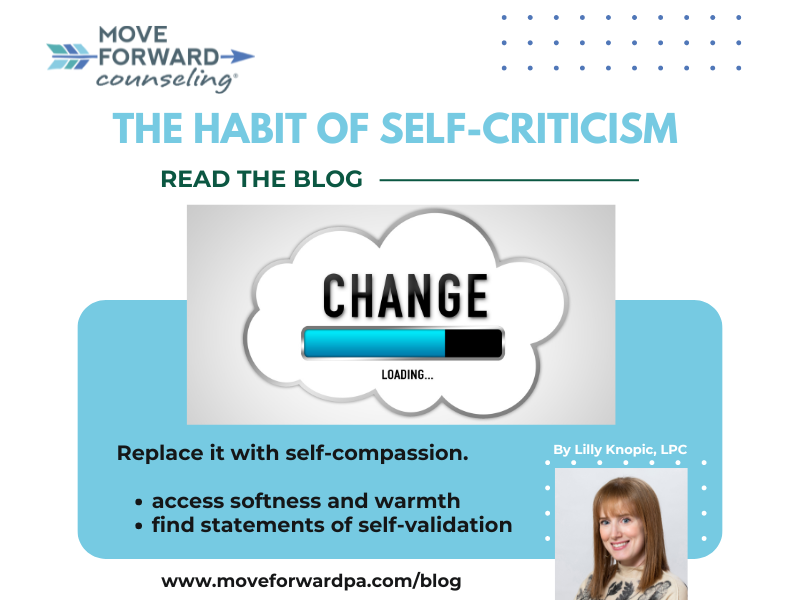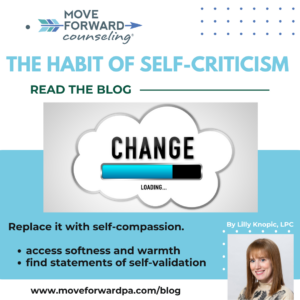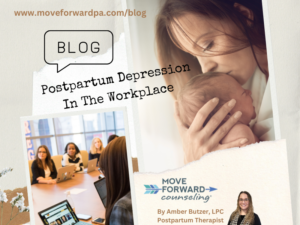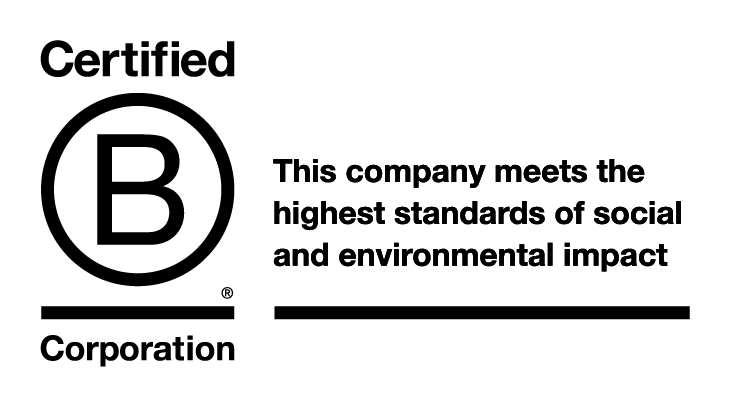Written by Lilly Knopic, LPC (she/her), MFC Therapist
A Mental Habit You Can Practice Today Using ACT and DBT-inspired Perspectives
What is change?
When we think about the word “change,” we often think of an outward behavior or habit, such as drinking more water, reaching out to a friend, or walking more frequently. Did you know that our thoughts are considered behaviors and habits, too? One of the most impactful pieces towards improved emotion management was noticing how my thoughts (“thinking habits”) impacted my mood and emotions. I learned it was important not to trust all thoughts and that my thoughts could increase the intensity of an unwanted emotion. Maybe that emotion fit the facts of the situation and made sense, but my self-pity or “inner critic” exacerbated that emotion and made an uncomfortable situation even worse. In this blog, I share one of my preferred ideas and strategies for increasing your psychological flexibility and the ability to “walk the middle path” in your emotional states with new thinking habits.
The Habit of Self-Criticism
The mental habit I’d encourage you to practice is accessing self-compassion; this habit of thinking more compassionately replaces the habit of self-criticism (Hill, 2021-present).
Self-compassion is not:
- being self-absorbed, self-pitying, or always getting what you want.
- self-esteem, nor is self-compassion negating what feels challenging.
Self-compassion is:
- believing you have worth
- paying attention to your needs
- being forgiving
- shifting expectations to be more realistic
Here’s how I create and reinforce this habit in the moment.
Notice, describe, and map out your self-criticism.
- Think about the last time your inner critic showed up.
- What were you doing? Did you make a mistake? Was it a new situation?
- Do you believe self-criticism will make you work harder or push you further?
These cues show up because we want to avoid the discomfort that comes. Try to access softness and warmth, which can be a tool that is literally self-soothing, such as grabbing a cozy blanket or creating warmth on your face by holding a coffee up to it. Accessing softness and warmth can also be figurative, such as in the language we use. What would you say to a friend?
Check the facts with statements of self-validation and your self-compassion phrases. Some examples are:
- “It makes sense that…” (ex. …I’m feeling anxious.)
- “I am learning from this…”
- “I’m healing.”
- “I’m proud of myself for making room for [emotion].”
Self-compassion examples are:
- “I’m doing the best I can with the skills I currently have in my toolbox.”
- “This emotion reminds me about what is important to me.”
- “I don’t have to like this, and I will survive it.”
Learn more about ACT and DBT, chat with scheduling (during business hours), or book ACT or DBT therapy with one of Move Forward Counseling, LLC’s trained therapists, including Lilly Knopic, LPC, for DBT-informed skills.
The Habit of Self-Criticism is one of three MFC articles focused on increasing your psychological flexibility and ‘walking the middle line’ of emotions.
Read the related Move Forward Counseling BLOGS
Dialectical Thinking: The “D” in DBT
Replace Worry Habits with “In The Moment” Gratitude
Resources for this article.
- This article is inspired by the Wise Effort Podcast by ACT expert Dr. Diana Hill (S5 E86; Five Mental Habits That Will Make Your Life Better): Hill, Diana (Host). (2021-present). Wise Effort Podcast [Audio podcast].
- DBT concepts adapted from DBT Skills Training Handouts and Worksheets, Second Edition by Marsha M. Linehan (2015).































